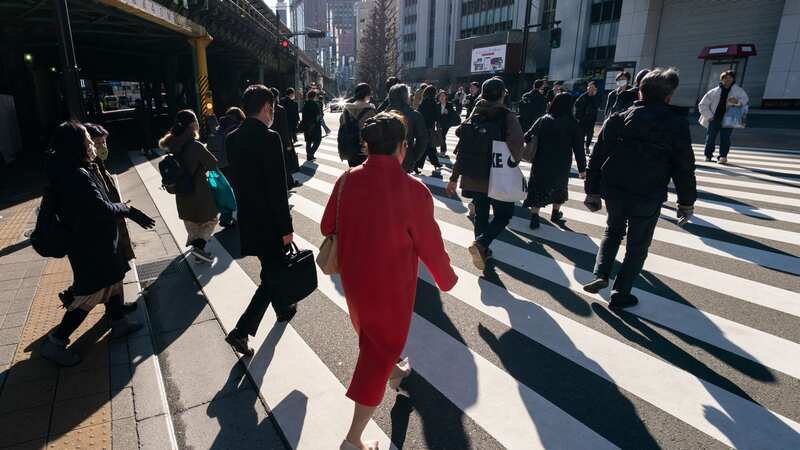Japan's economy is now the world's fourth-largest after it falls behind Germany

Japan has slipped into a recession and lost its position as the world's third-largest economy, falling behind Germany.
The country's economy contracted in the last quarter of 2023, making it now the world's fourth-largest. The government reported that the economy shrank at an annual rate of 0.4% from October to December, according to data released by the Cabinet Office.
Despite growing 1.9% for all of 2023, it contracted 2.9% from July to September. Two consecutive quarters of contraction indicate a technical recession. Japan's economy was overtaken by China's in 2010, becoming the second largest.
Last year, Japan's nominal GDP totalled $4.2 trillion, (£3.3 trillion) while Germany's stood at $4.4 trillion (£3.5 trillion). A weaker Japanese yen contributed to the drop to fourth place, as nominal GDP comparisons are made in dollar terms. However, economists also attribute Japan's relative weakness to a decline in its population and lagging productivity and competitiveness.
Real gross domestic product measures the value of a nation's products and services. The annual rate indicates what would have happened if the quarterly rate had lasted a year. Once called "an economic miracle," Japan bounced back from World War II to become the second largest economy after the U.S. But for nearly 30 years, its growth has been slow and steady, mainly because of the financial bubble that burst in 1990.
 Teachers, civil servants and train drivers walk out in biggest strike in decade
Teachers, civil servants and train drivers walk out in biggest strike in decade
The economies of both Japan and Germany are robust due to strong small and medium-sized businesses known for their productivity. Just like Japan during the 1960s-1980s, Germany led the way in the 21st century, ruling global markets with products such as luxury cars and industrial equipment. Half of its economy depended on exports.
Yet, last year, the country's economy didn't fare well and even shrank by 0.3% in the final three months. Similarly, the UK also saw a dip at the end of last year. It was reported on Thursday that the economy suffered a technical recession in October-December, contracting 0.3% from the previous quarter following a 0.1% drop in the preceding three months.
Japan, being an island nation with relatively few foreigners, has seen its population gradually declining and ageing over the years. Meanwhile, Germany's population has grown close to 85 million, largely credited to immigration offsetting its low birth rate.
Tetsuji Okazaki, a professor of economics at the University of Tokyo, thinks Japan's weakening economy will result in it having less world influence. He said: "Several years ago, Japan boasted a powerful auto sector, for instance. But with the advent of electric vehicles, even that advantage is shaken," and hinted at a gloomy future by stating, "But when looking ahead to the next couple of decades, the outlook for Japan is dim."
It seems the gap between developed countries and emerging nations is getting smaller, with India likely to overtake Japan in nominal GDP soon. Despite this, the U.S. still has the largest economy, standing at $27.94 trillion (£21.5 trillion) in 2023 compared to Chinas $17.5 trillion (£14 trillion) and India's growing $3.7 trillion (£2.9 trillion).
One possible solution to Japan's labour shortage could be immigration, but Japan isn't overly welcoming to foreign labour. Robots are another option, but they cant fully replace workers yet. People arent spending money due to stagnating wages, which is hurting Japan's growth. Businesses are also investing more in quicker growing economies overseas rather than their local, declining market.
Private consumption saw a downfall for three consecutive quarters last year, according to Marcel Thieliant of Capital Economics. He remarked, "growth is set to remain sluggish this year as the household savings rate has turned negative," and added, "Our forecast is that GDP growth will slow from 1.9% in 2023 to around 0.5% this year."
Read more similar news:
Comments:
comments powered by Disqus

































